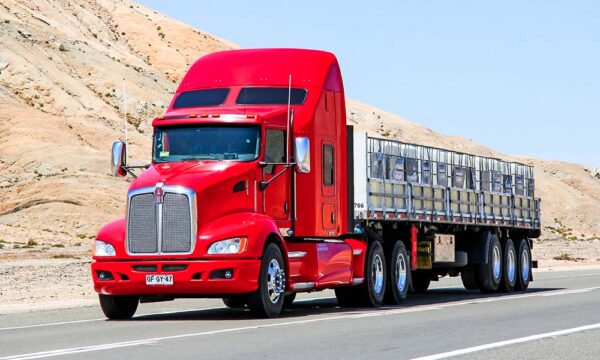
Nevada State Legislature is considering Assembly Bill 188, a ban on triple trailers – semi-trucks with three trailers. Triple trailers are banned in 37 states already. By adding a rear trailer, the truck configuration can total up to 105 feet, which may be more dangerous than the common single and double trucks.
Truck Drivers Support the Ban
Truck drivers who have survived close calls involving triple trailers are encouraging the ban. Truckers say that adding a third trailer increases the danger with seemingly no benefit to the citizens of Nevada.
Risks of the 105-foot-long trucks:
- Trailers sway into oncoming traffic
- Prone to tipping
- Take too long to pass safely
- Take longer to stop, accelerate and merge
Terry Sumter, a UPS driver for 30 years, has experienced the back trailer moving into the oncoming lane. “The most significant condition is the sway of the rear trailer,” Sumter states.
Health Concerns for Triple Trailer Drivers
Drivers pulling triple trailers may exhibit higher heart rates and grow fatigued sooner than drivers hauling smaller configurations, according to John Phillipenas, secretary-treasurer of Teamster’s Local 631 in Las Vegas. Accidents involving fatigued truck drivers already account for about 100,000 crashes and 1,800 deaths, according to the National Highway Traffic Safety Administration (NHTSA).
Farming Industry Supports Triple Trailers
Hay and alfalfa are the main export from Nevada, and farmers say the third trailer is needed to provide enough space to transport the bulky commodity. Doug Busselman, a lobbyist for the Nevada Farm Bureau, said the ban would hurt alfalfa producers, which are Nevada’s biggest cash crop.
Limited Research Shows Triple Trailers are Safer
Accident rates for single, double and triple trailers were assessed by a Federal Highway Administration study that claimed triple trailer configurations have fewer accidents than single and some double trailers per 100 million miles driven. However, experts also point out that restrictions confine triple trailers to uncongested western highways during the daylight, which is a recipe for greater road safety. To produce accurate research into the dangers of triple trailers, single and double semis driving under the same circumstances must be compared to the triples.
More is Better
This debate sounds similar to ones in which trucking companies have been urging Congress to increase the weight limit on trucks from 80,000 to 97,000 pounds, which would make them 20 times larger than the average passenger vehicle. Additional trailers or heavier trailers both result in a longer stopping time, which is a danger in high-traffic areas where trucks do not have enough space to stop. This seems incongruent to the goals of the new braking standards issued by NHTSA in 2009, which will require trucks to stop in 30 percent less space than previously mandated.
The committee in Nevada has not voted on the issue yet. Additional research should be done to determine the actual safety level of triple trailers.
If you or someone you care about was injured or if you lost someone in an accident involving a truck towing any number of trailers, please contact us. We are expert trucking attorneys, and we can discuss with you all your options regarding the accident. The consultation is free.
Read More:
Tractor trailer had followed regulations | Accident
Werner Enterprise Semi Trailer Burns
Two Semi Trucks Involved in 15 Car Pileup on Florida
Semi Truck Head On Collision in Monterey
Rear-End Accident in North Carolina
Tractor Trailer Flips Near Athens AL
Semi Truck Crash on I-20 Near Augusta
Semi Truck Accident on South Carolina
North Carolina Troopers Crack Down on Unsafe Big Rigs
Fiery Tractor Trailer Accident
Fiery Semi Truck Crash on I-95
Delivery Truck accident Near Palm Beach
Collision Leads to Truck Accident
